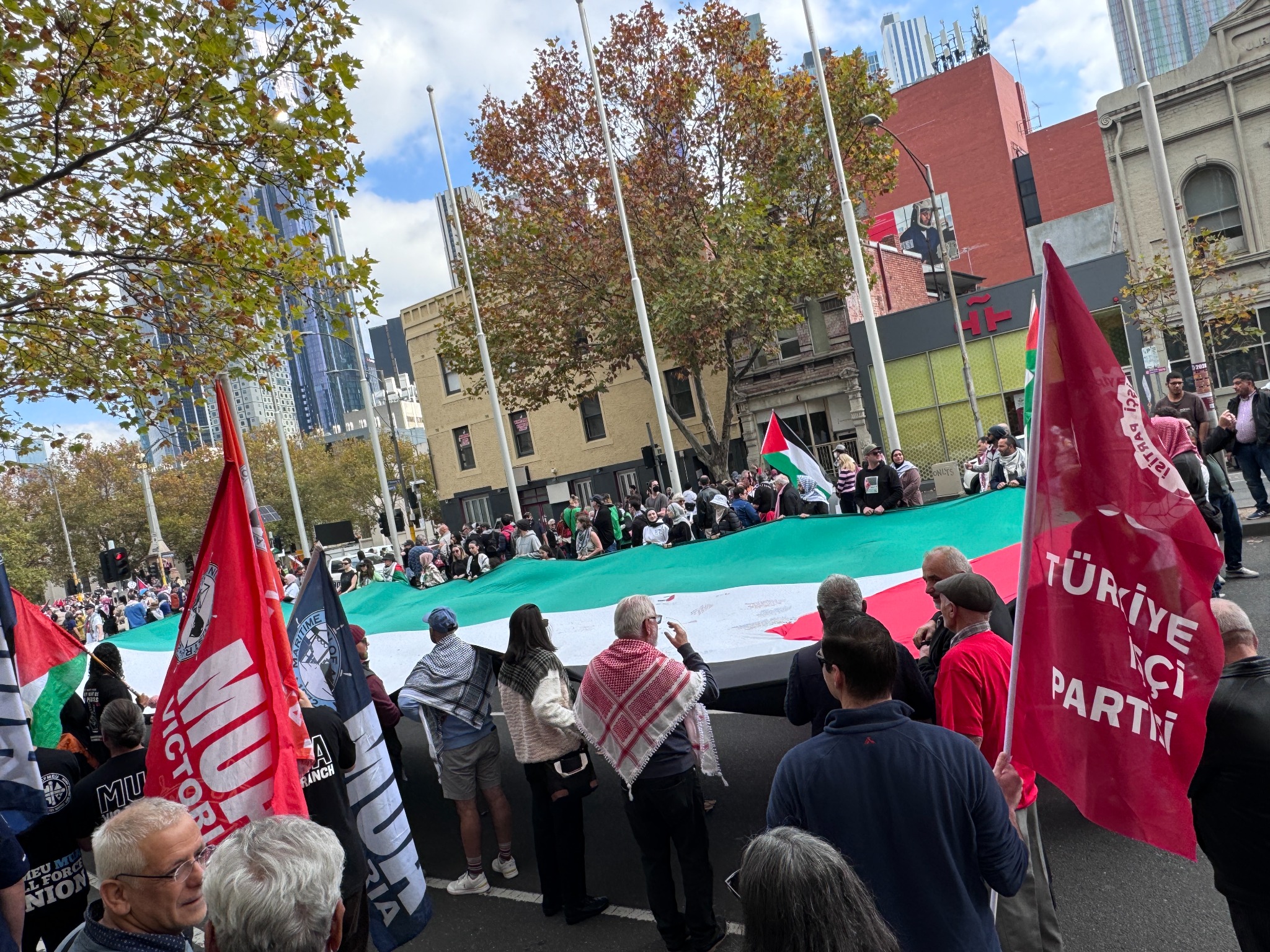
“I think it's freedom of politics and speech,” Chinese Respond to Their Opinion on the Palestinian- Israeli Conflict Protests in Melbourne
Recently, solidarity with the Palestinian-Israeli conflict has swept through Australia, and Chinese Australians shared their feeling when they first experienced political protests and said it rarely happened in China.
Over the past fortnight, as the situation in the Palestinian-Israeli conflict has intensified, a wave of protests on US campuses has spread to Australia, where students from six Australian universities have camped out on the lawns of their campuses and held protests in the streets.
Thomas Weight, a pro-Palestinian political economy tutor at the University of Melbourne, participated in the protest on campus and said the protests were aimed at severing economic ties between the university and companies that profit from Israeli apartheid, genocide, and the occupation of Palestine.
“We would remain on the lawn until the university met our demands,” an Australian-born-Chinese, pro-Palestinian student Emily G said.
“I think the protests against the Palestinian-Israeli conflict are a sign of freedom of expression and politics,” said Yidan Gao, a Chinese student studying for a PhD in Australia.
“However, I don't think either side is right, so I'm not participating.”
“My own political opinion is that civilians on both sides of the aisle should not be killed and that simply camping on the school lawn is a more peaceful way to show solidarity,” she said.
“In China, we simply won't have any space for free political expression. This was the first time I witnessed protests.”
Meanwhile, Yidan Gao said she was not concerned that participating in or supporting similar demonstrations and protests would inconvenience her subsequent return to China.
On May 7, clashes between Palestinian and Israeli protesters at the "Solidarity with Gaza" camp at Deakin University in Victoria resulted in cuts and bruises to a faculty member.
“It is the fact that there are protesters who keep stirring up conflict, and the result is the creation of more hatred,” a researcher at the Chinese Academy of Social Sciences, a renowned expert on the Middle East Gang Yin said.
“If violence against violence is justified, then this conflict will never end,” he said.
Samantha Ng, a Chinese tourist traveling to Australia, said that students are more impulsive and easily guided and that their camping out at school is not necessarily the right political freedom.
At the same time, she said it's hard to see demonstrations and protests like this in China, and she finds it very novelty.
“But I'm not going to participate in their protests because it doesn't feel necessary. I don't want to get into any trouble.”
“It's a peaceful protest. It's also personal freedom for the participants,” Kelvin C, a student at the University of Melbourne said.
“China had a similar situation in the 20th century, so it makes me feel sympathetic to them,” he said.
In the 1930s, when the Japanese army launched the war of aggression against China and many countries were participating in the Second World War, China was in a state of isolation.
Referring to why similar protests are rare in China and whether this is freedom of expression and politics in contrast to the political situation in China, Kelvin C looked embarrassed and said, “I'm afraid to respond to that. It's hard to say.”
The Palestinian-Israeli conflict has a complex history, with both religious and political factors, and is mainly a struggle for sovereignty over the same piece of land by these two peoples.
Since the outbreak of the new round of the Palestinian-Israeli conflict last October, pro-Palestinian demonstrations have taken place on university campuses, sometimes escalating into violent clashes.
Pro-Palestinian students at the University of Melbourne occupied the Arts West Building yesterday, affecting normal teaching work and studies.
“I had no feelings about the protest before, but they occupied the building and I was forced to change my class tomorrow to online, which seriously affected my study planning,” a Chinese student Prudence Chen said.
In this regard, the University of Melbourne said “The continued occupation of University sites presents an unacceptable risk to the safety, security, and important work of our entire community.”
Post a comment